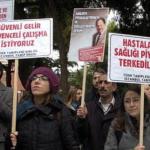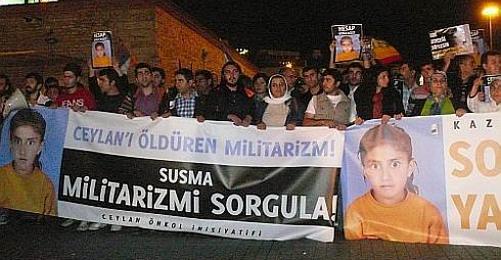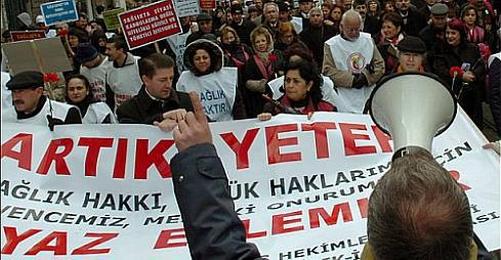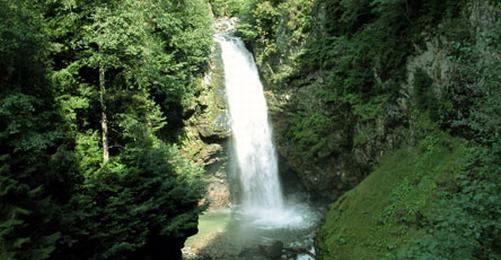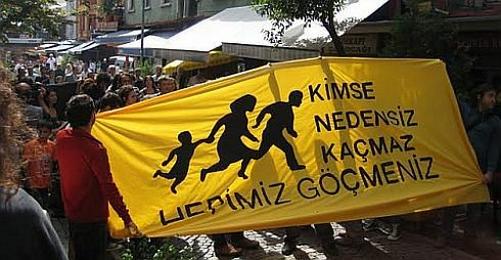On 1 April, workers followed the call of the Confederation of Revolutionary Workers’ Trade Unions (DISK), the Confederation of Trade Unions for Employees in the Public Sector (KESK), the Turkish Union of Chambers of Architects and Engineers (TMMOB), the Turkish Union of Physicians (TTB) and the Turkish Union of Dentists (TDB) to stop work and protest against the planned Law on Social Security and General Health Insurance.
"No compromise reached"
All around Turkey, workers protested and made press statements at the same time.
The shared statement said, “Although the step backwards taken by the government recovered some of the losses of our rights, there were not enough fundamental changes to the law.”
The statement further criticised the government for giving the impression that a compromise had been reached and called for a withdrawal of the law.
On Saturday, 6 April, there will be more protests.
5,000 in Istanbul
A protest in Kadiköy, on the Asian side of Istanbul, drew around 2,000 protesters, while there were around 3,000 on the other side, in Caglayan, demonstrating in front of the ruling Justice and Development Party’s (AKP) building.
Deputy Prime Minister Cemil Cicek had warned the workers before the protests, saying, “If they do not obey the laws, the state will use whatever force necessary. DISK general secretary Tayfun Görgün reacted to Cicek, saying, “It is in fact illegal to prevent people from using their democratic rights. If one person’s nose bleeds at the protests, then the government is responsible.”
Ankara, Izmir, Tunceli
When a group of employees from the health sector attempted to march from a hospital in Ankara to the parliament, police built barricades around the parliament. When the workers tried to pass them, skirmishes took place.
Izmir on the Aegean coast hosted a show of strength as tens of thousands of workers walked to Konak Square.
In Tunceli, eastern Turkey, around 2,000 people demonstrated. Following a press statement, the protesters staged a five-minute sit-down protest. (EZÖ/AG)
* This article used information from sendika.org, ntvmsnbc.com, demokratradyo.com and Umut Karakoyun.






